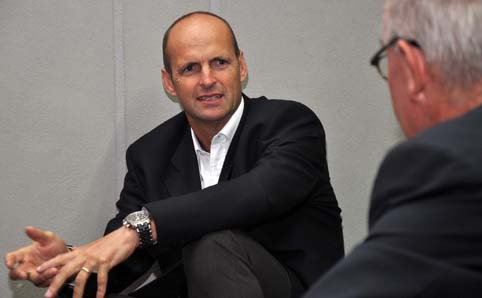Latest News Archive
Please select Category, Year, and then Month to display items
04 April 2024
|
Story Lunga Luthuli
|
Photo SUPPLIED
 Dr Juliet Kamwendo champions gender-inclusive climate action in Africa. Her expertise at the recently held AFR100 workshop highlighted vital steps towards sustainable and equitable development.
Dr Juliet Kamwendo champions gender-inclusive climate action in Africa. Her expertise at the recently held AFR100 workshop highlighted vital steps towards sustainable and equitable development.
Dr Juliet Kamwendo, Lecturer and Programme Director for Gender Studies in the Centre for Gender and Africa Studies at the University of the Free State, is spearheading efforts to integrate gender considerations into Africa's climate restoration agenda. Reflecting on her involvement, Dr Kamwendo stated, "This is particularly crucial, as women make up almost 50% of the population in Africa, and the depletion and degradation of land affect them disproportionately."
She recently served as a gender expert at the AUDA-NEPAD AFR100 workshop in Ouagadougou, Burkina Faso, from 25 to 29 March 2024. This initiative aims to restore forests and degraded land across Africa by 2030, with a focus on gender equality.
The workshop emphasised the integration of gender perspectives into the AFR100 project, acknowledging the disproportionate impact of land degradation on women. Dr Kamwendo's expertise highlighted the need to empower women in climate change interventions, addressing existing gender inequalities exacerbated by environmental degradation.
“Women – who are primarily responsible for household food security and water provision – bear the brunt of environmental degradation, leading to increased workloads, reduced income opportunities, and heightened vulnerability to climate-related disasters. Furthermore, the loss of forest cover and biodiversity further exacerbates the challenges faced by women, particularly in rural areas where they depend heavily on natural resources for their livelihoods,” added Dr Kamwendo.
Her participation highlights academia's crucial role in fostering inclusive and sustainable development, emphasising interdisciplinary collaboration to tackle complex environmental challenges. Through initiatives such as AFR100, stakeholders are working towards a more resilient and gender-responsive future for Africa.
Making a difference is the most important thing for Gary Kirsten
2012-05-16
 |
|
Gary Kirsten
16 May 2012
|
“Can I make a difference in someone’s life?” This was the central driving force for Gary Kirsten, head coach of the 2011 World Cup winning Indian cricket team. He currently coaches the Proteas.
Gary was the first guest speaker at a new series of lectures at our Business School. Challenges and solutions in management will be highlighted in the series. In his lecture, Gary was interviewed by Prof. Johann Coetzee, Extraordinary Professor at the Business School. The audience got a glimpse of the person often seen on television screens and they travelled with him from his childhood days at the Newlands Cricket Ground to his days in New Delhi as head coach of the Indian team.
His challenge in India was to develop a new culture in a team with very valuable and expensive brands. His light-bulb moment occurred on a team-building visit to Australia. His question to the team was what he could do for them and what they would expect from him. The turning point was Sachin Tendulkar’s answer: I would like you to be my friend. Tendulkar’s wife’s comment on the winning night was the proof of his success. She said: “The last three years were the happiest in my husband’s life.”
Gary said it was an incredible privilege to make a difference in people’s lives. “I wake up asking myself where I can make a difference in someone’s life. You must create an environment for people to enjoy the game, challenge one another and thrive.”
He is confident that the Protea team has the potential to be a great cricket team. He said the upcoming England tour is a test. “This tour will test us to be the top team in the following years. I would like to set them up for the best chance to win.”